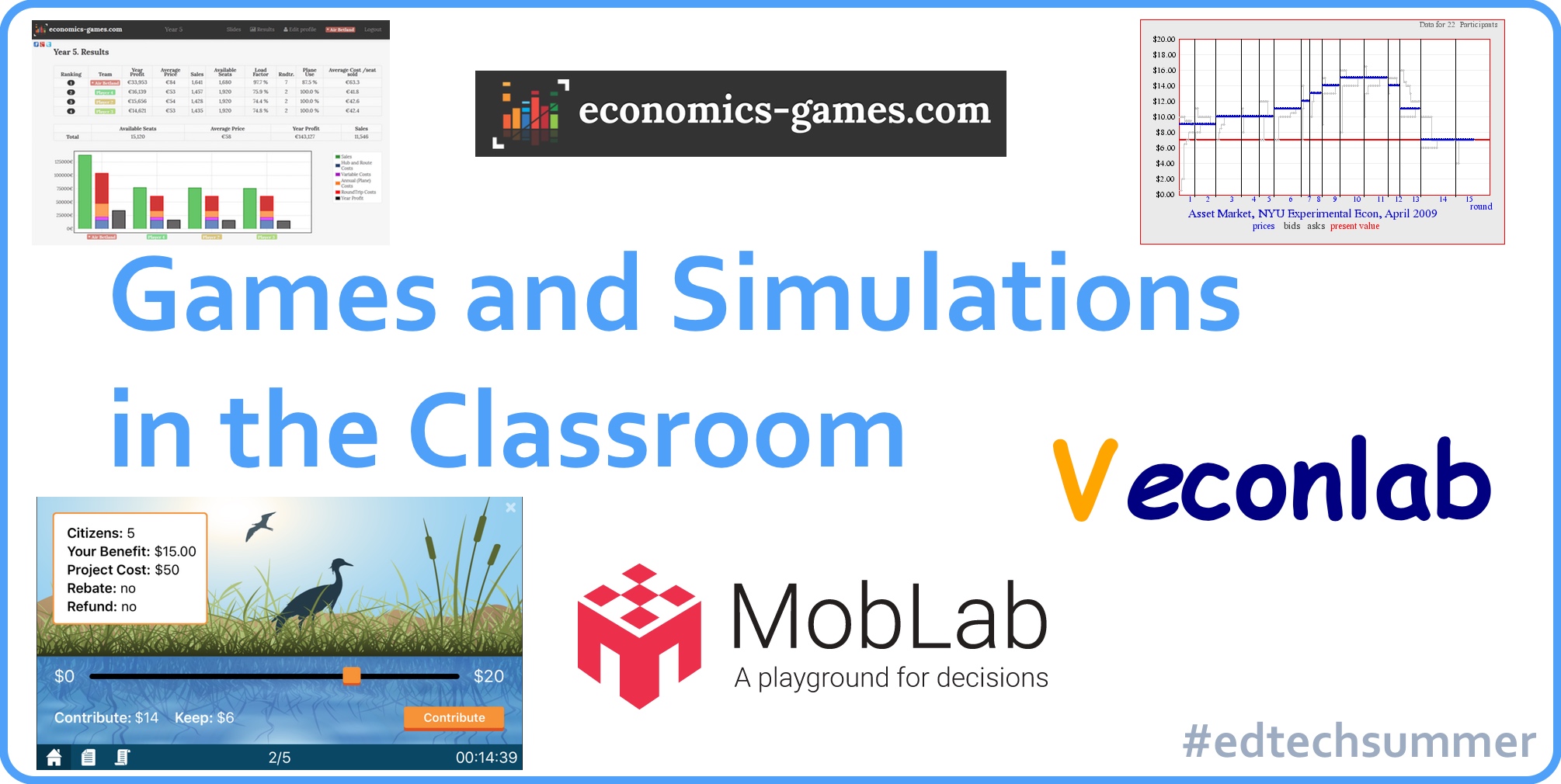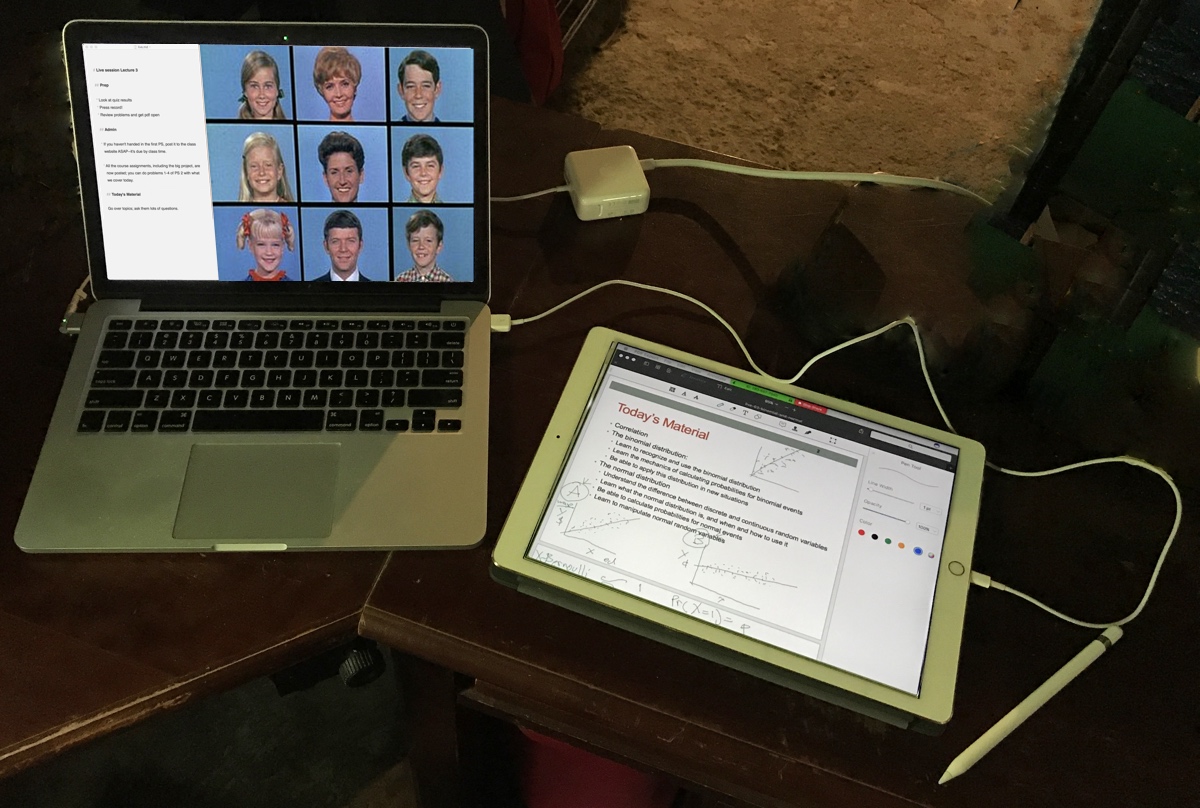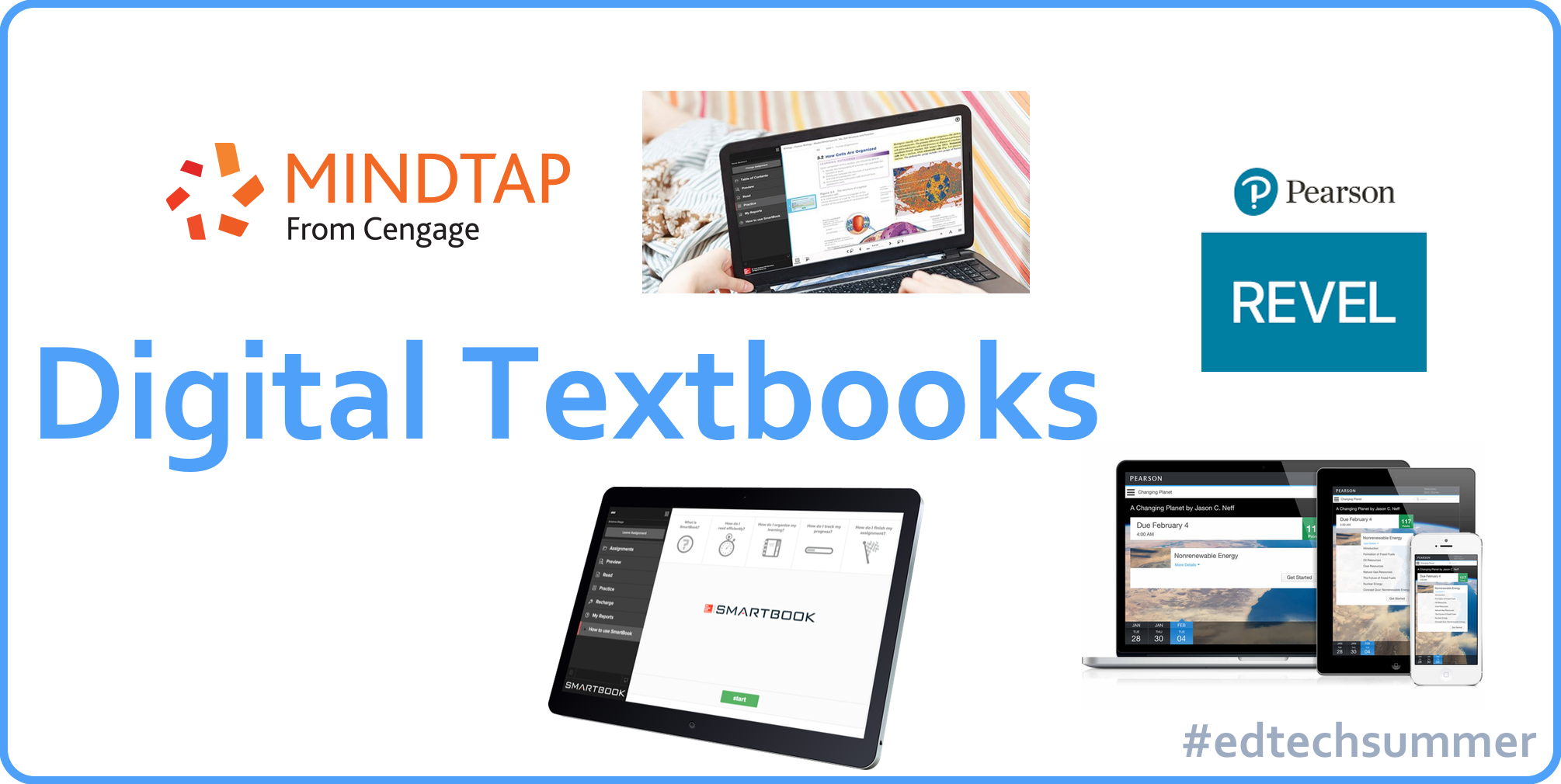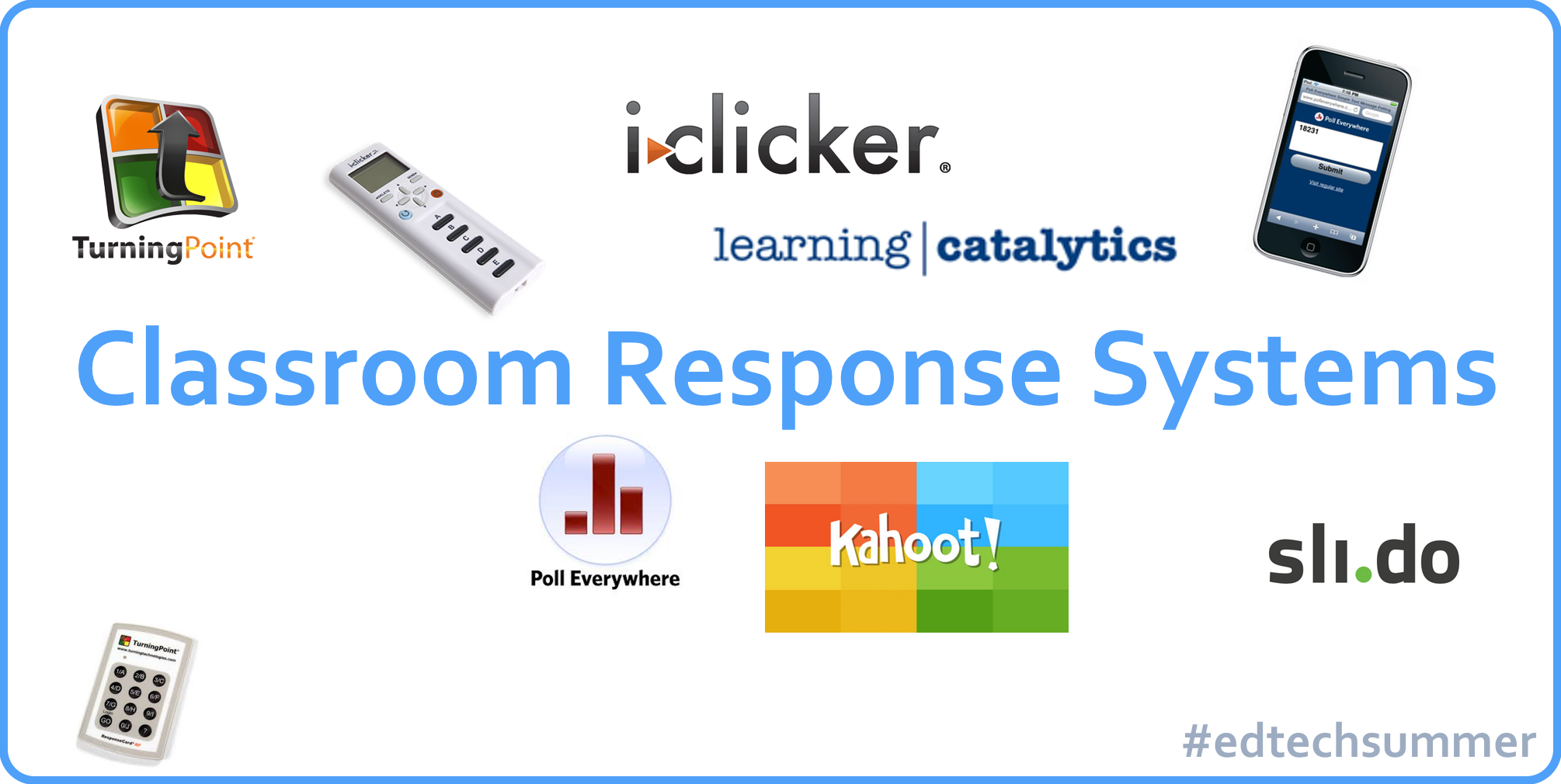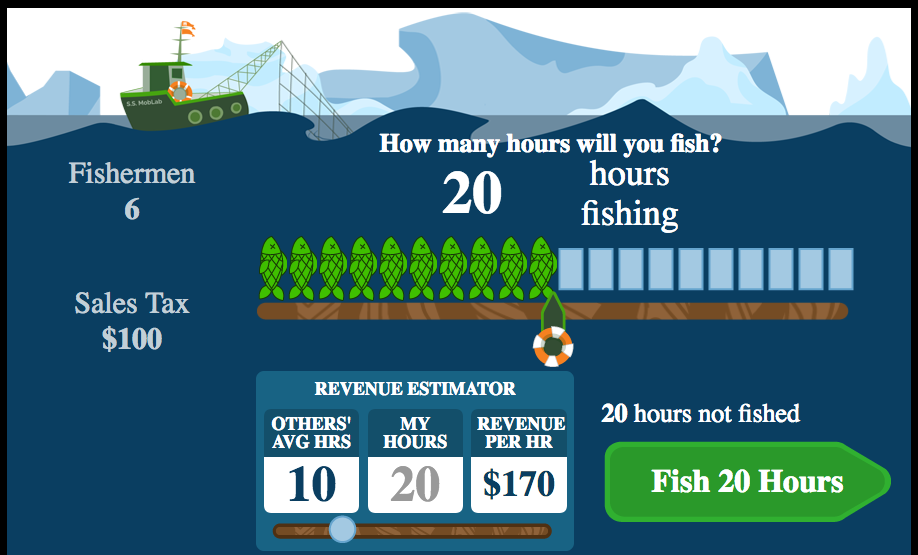Podcast #59
Economists study systems where individuals make decisions about buying, selling, and investment, and interesting patterns emerge. As in many disciplines, they teach by developing theory and pointing to examples in the real world, but it’s not always very convincing. Doing simulations and playing games in class lets students participate and see for themselves where the theory does and does not apply. Our guests Bob Gazzale (Toronto) and Matt Olczak (Aston) do this in their classes using three different web platforms: Moblab, economics-games.com, and vEconlab. In this episode they share their experiences with each.
